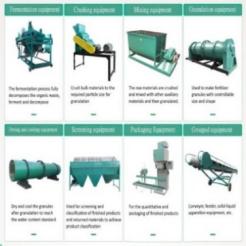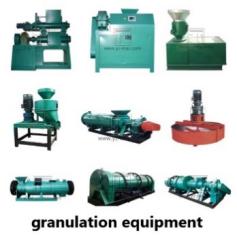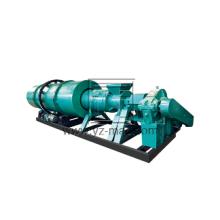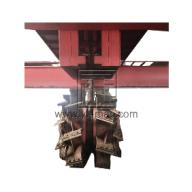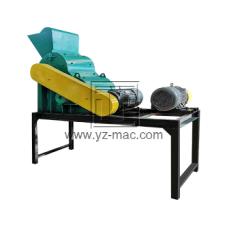Organic fertilizer pellet machine
An organic fertilizer pellet machine is a specialized equipment designed to convert organic waste materials into convenient and nutrient-rich pellets. This machine plays a crucial role in organic waste management and sustainable agriculture by transforming waste into valuable organic fertilizers.
Benefits of an Organic Fertilizer Pellet Machine:
Nutrient-Rich Fertilizer Production: An organic fertilizer pellet machine enables the conversion of organic waste materials, such as animal manure, crop residues, food waste, and green waste, into nutrient-rich fertilizer pellets. These pellets contain a balanced blend of essential nutrients, including nitrogen, phosphorus, and potassium, along with micronutrients required for plant growth.
Efficient Nutrient Release: Organic fertilizer pellets undergo a controlled release of nutrients, gradually providing plants with the necessary nourishment. This controlled-release feature minimizes nutrient loss through leaching and ensures a steady supply of nutrients to support healthy plant growth over an extended period.
Enhanced Soil Fertility: Organic fertilizer pellets improve soil fertility by replenishing organic matter and essential nutrients. When applied to the soil, these pellets enrich the soil’s nutrient content, enhance its structure, promote microbial activity, and improve water retention capacity, resulting in healthier and more productive plants.
Environmentally Friendly: Using an organic fertilizer pellet machine contributes to sustainable waste management practices. By recycling organic waste materials into fertilizer pellets, it reduces landfill waste, decreases greenhouse gas emissions, and helps close the nutrient cycle, promoting a more sustainable and environmentally friendly approach to agriculture.
The Pelletizing Process:
The organic fertilizer pellet machine operates through a pelletizing process that involves several key steps:
Raw Material Preparation: Organic waste materials, such as animal manure, crop residues, or food waste, are collected and properly prepared for pelletizing. This may involve drying, grinding, or mixing the materials to achieve the desired composition and moisture content.
Mixing and Conditioning: The prepared raw materials are thoroughly mixed and conditioned to ensure a uniform distribution of nutrients and moisture. This step ensures that the resulting fertilizer pellets have a balanced nutrient content and optimal pelletizing properties.
Pellet Formation: The mixed and conditioned materials are fed into the organic fertilizer pellet machine, where they undergo a pelletizing process. The machine compresses the materials into cylindrical or spherical pellets using high pressure and heat, resulting in compact and durable pellets.
Cooling and Screening: The freshly formed fertilizer pellets are cooled to reduce their temperature and moisture content. They are then screened to remove any oversized or irregularly shaped pellets, ensuring a consistent pellet size for optimal application.
Applications of Organic Fertilizer Pellets:
Agriculture and Horticulture: Organic fertilizer pellets are widely used in agricultural and horticultural practices to enhance soil fertility and promote plant growth. They can be applied to field crops, vegetables, fruits, flowers, and ornamental plants, providing a slow-release source of nutrients and improving soil health.
Landscaping and Turf Management: Organic fertilizer pellets are suitable for maintaining healthy lawns, sports fields, golf courses, and other landscaped areas. They promote root development, improve grass quality, and minimize the risk of nutrient runoff and environmental pollution.
Organic Farming: Organic fertilizer pellets are a vital component of organic farming systems. They comply with organic standards, provide essential nutrients for crops, support soil health, and help farmers achieve sustainable and environmentally friendly agricultural practices.
Soil Remediation and Restoration: Organic fertilizer pellets can be utilized in soil remediation and land restoration projects. They aid in the revitalization of degraded soils, improve soil structure, promote vegetation establishment, and contribute to the restoration of ecosystems.
An organic fertilizer pellet machine offers a sustainable solution for converting organic waste materials into nutrient-rich fertilizer pellets. By using this machine, organic waste can be effectively recycled and transformed into valuable fertilizers, reducing environmental pollution and supporting sustainable agriculture. The resulting organic fertilizer pellets provide a slow-release source of nutrients, enhance soil fertility, and promote healthy plant growth.



